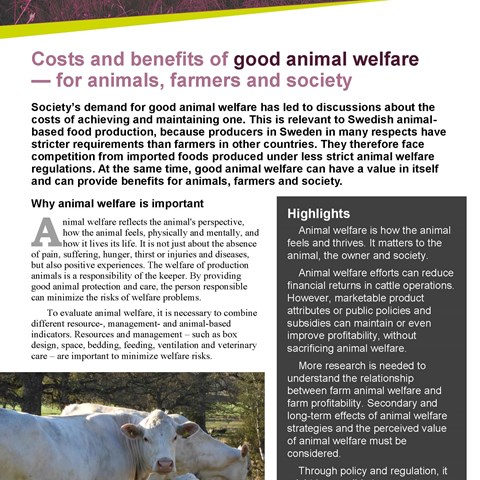Contact
Ulf Emanuelson, Researcher
Department of Clinical Sciences, SLU
ulf.emanuelson@slu.se, +46(0)18-67 18 26

Animal welfare measures affect the profitability of Swedish milk and beef production. Secondary and long-term effects of animal welfare strategies and the perceived value of animal welfare must be taken into account.
Through policy and regulation, it might be possible to convert functional animal welfare values to monetary terms without losing respect for intrinsic values (for the animal itself). Marketable product attributes or public policies and subsidies can still maintain or even improve profitability, without sacrificing animal welfare.
Contact
Ulf Emanuelsson, Researcher
Sveriges Lantbruksuniversitet
Department for Clinical sciences
ulf.emanuelsson@slu.se
Authors: Haseeb Ahmed, Karin Alvåsen, Charlotte Berg, Ulf Emanuelson, Helena Hansson, Jan Hultgren and Helena Röcklinsberg
Contact: ulf.emanuelson@slu.se
© The Authors, February 2022, CC BY-NC-ND
The project Good animal welfare was conducted 2018-2021 by Department of Clinical Sciences, Department of Animal Environment and Health and Department of Economics, with funding from Research Council Formas (2017-00611 and 2017-00625).
Ulf Emanuelson, Researcher
Department of Clinical Sciences, SLU
ulf.emanuelson@slu.se, +46(0)18-67 18 26